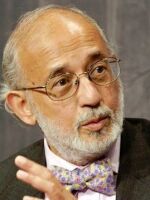I have to agree that Gary Oldman fully deserved the Academy Award for his brilliant portrayal of Winston Churchill, British Prime Minister during the Second World War, in the movie, Darkest Hour. But the trouble is, while the movie is true to the fact that Churchill did indeed almost single handedly keep British spirits alive during the darkest days of the war, it almost completely overlooks other more troubling aspects of his character – which includes an unquestioning belief in the superiority of the British people, supplemented with bigoted ideas about race and class.
As I left the movie theater, I was reminded that his brilliance existed side by side with depravity, his soaring rhetoric with racist behavior, and his principled leadership with reprehensible actions – all this within the persona of just one man.
In Kenya, Churchill’s policies led to the forced evacuation of 150,000 Kenyans from fertile land most of them owned outright to detention camps, sometimes by means of rape and torture, in order to accommodate white settlers. Among those tortured was Hussein Onyango Obama, who never fully recovered, and whose grandson would become the President of the United States.
During the late nineteenth century in Afghanistan, Churchill condoned wholesale destruction of villages, capping of wells, and killing of Afghans to demonstrate, as he put it, the superiority of race. And during the uprising for independence in Mesopotamia, Churchill was ready to use poison gas to kill the nationalists. Fortunately, wiser heads prevailed.
In India, my country of birth, some 3 to 4 million people died during the 1943 famine in Bengal when Churchill ordered food supplies that would have saved the Bengalis to be distributed instead to British soldiers. Serves them right he scoffed, for breeding like rabbits – adding that India and Indians were a beastly people with a beastly religion.
There’s no denying that Churchill was a wordsmith par excellence, and a dynamic leader as well. And the movie, Darkest Hour, does a terrific job of capturing those qualities of the man. But in the end, it lacked perspective and gave an incomplete picture of one of the world’s most important contemporary historical figures.
Especially now - at a time when so much of the world is still struggling to achieve racial and economic justice - I can’t help thinking how much better and educational this movie could have been.






